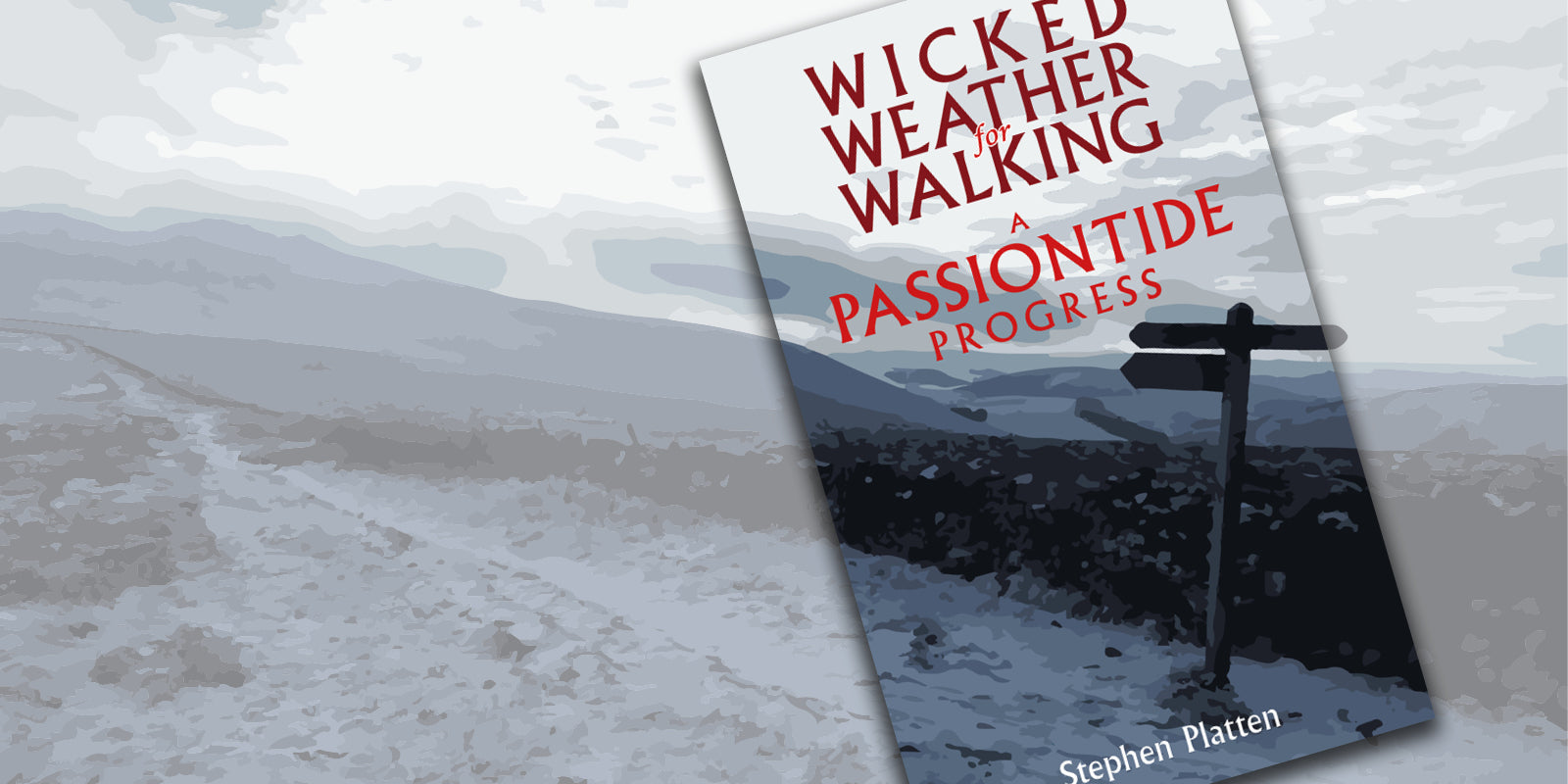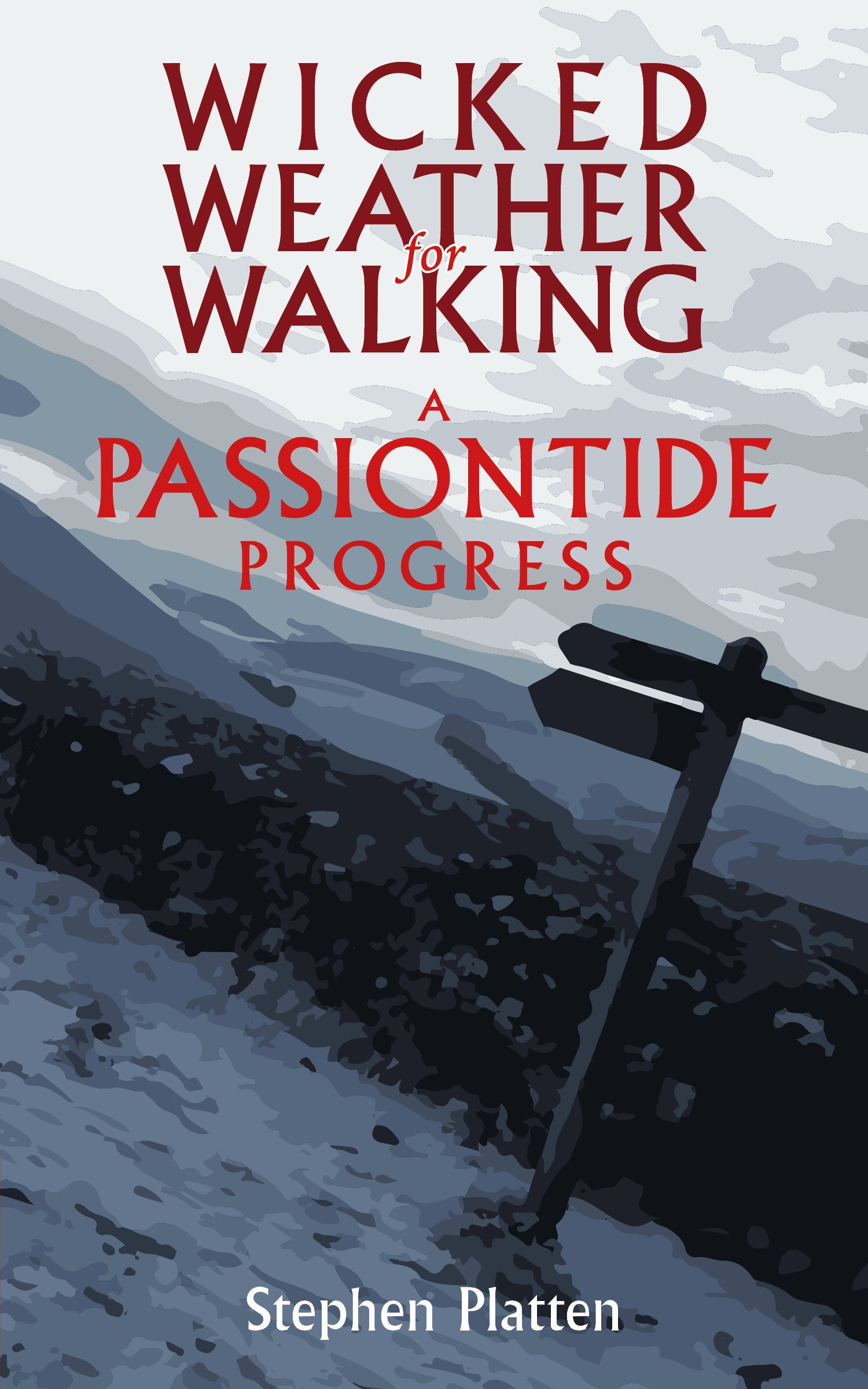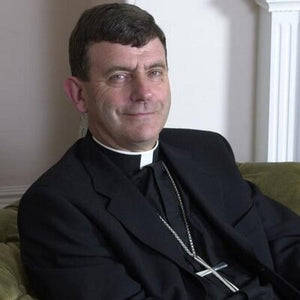GUEST BLOG: As Lent fast approaches author Stephen Platten introduces us to his new book Wicked Weather for Walking: A Passiontide Progress
In the days of yore, the young peoples’ group from Portsmouth Cathedral would make an annual pilgrimage to a fairly local shrine. On one occasion it was to St Swithin at Winchester, and on another to St Richard of Chichester. Some sense of adventure was normally added to the journey. This time it was a seaward voyage. We started at Camber Dock, Portsmouth’s oldest quay, and packed thirty young people into a small but robust boat, travelling only about two hundred yards from the edge of the coast all the way to Selsey Bill. Here we disembarked by leaping over the prow of the boat on to the pebbled beach, just as St Wilfrid would have done thirteen hundred years earlier. Our journey happily avoided our being exiles as was the case with Wilfrid on more than one occasion. Our first destination was St Wilfrid’s Chapel in the tiny hamlet of Manhood End. Just about a century ago, poet Rudyard Kipling wrote a poem about this very chapel. He wrote moving but simple verses which have lent some of their words to stand as the title of this short devotional book.
on another to St Richard of Chichester. Some sense of adventure was normally added to the journey. This time it was a seaward voyage. We started at Camber Dock, Portsmouth’s oldest quay, and packed thirty young people into a small but robust boat, travelling only about two hundred yards from the edge of the coast all the way to Selsey Bill. Here we disembarked by leaping over the prow of the boat on to the pebbled beach, just as St Wilfrid would have done thirteen hundred years earlier. Our journey happily avoided our being exiles as was the case with Wilfrid on more than one occasion. Our first destination was St Wilfrid’s Chapel in the tiny hamlet of Manhood End. Just about a century ago, poet Rudyard Kipling wrote a poem about this very chapel. He wrote moving but simple verses which have lent some of their words to stand as the title of this short devotional book.
The poem tells of Eddi (probably a reference to Wilfrid’s earliest biographer) offering a service in the chapel on a bitter and stormy winter’s night. As the hour approaches, no one appears - Eddi’s only congregation was made up of a bullock and an old marsh donkey. They mirrored the ox and ass traditionally pictured in Christmas cribs. The heart of the poem is the courage and determination of Eddi, the priest, to press on despite all odds, offering praise and thanksgiving to the God of the Lord Jesus Christ to whom he has given his life. Rather like Wilfrid’s determination to bring the Gospel to others, even when in exile, Eddi sees his life and vocation as one of pilgrimage. It is this that also lies at the heart of the book.
The book itself captures the setting of Wilfrid’s time, for in the seventh century Christianity would be brought once again to these islands by courageous pilgrims from Rome and elsewhere, some coming first to Ireland before embarking for mainland Britain. Those pilgrims have left their footprints throughout our islands. At Clonmacnoise in the meanders of the River Shannon, Ciaran established his monastery, parts of which still survive today. On Iona, there remains an abbey actively living the Christian life, nearby to where Columba arrived still earlier, in the sixth century. In Durham is the shrine to Cuthbert, follower of Aidan. Together they brought the Gospel to Northumbria which eventually became a crucible of Christian culture and scholarship. These would help mould the emerging civilisation of Western Europe. Then Canterbury too, with its cathedral crowned by the Bell Harry Tower, and with the ruins of Augustine’s abbey nearby, bears testimony to the waves of missionaries, commissioned by Pope Gregory the Great, to tell the story of Jesus to the ‘uncivilised’ Anglo Saxons.
So, our book calls to mind the pilgrim consciousness of these early days. Missionary work then was a continuous challenge. The early biographies of Columba, Cuthbert, Wilfrid and so many others make it clear beyond doubt that such pilgrims did indeed encounter ‘wicked weather for walking’. But, alongside this theme of pilgrimage which continues with countless individuals and companies trudging their way to Assisi, Jerusalem, Santiago de Compostela or even to Durham, Canterbury, Walsingham and the Holy Island of Lindisfarne in our own day - alongside this runs the unfolding of the pilgrimage made by Jesus himself in what we now call Holy Week.
If ever there was wicked weather for walking it is there in spades as the events of the Passion unfold. The week begins in carnival-like mood as Jesus enters into Jerusalem, again on an ‘old marsh donkey’ yet hailed by pilgrims as a king. It ends on one of the prominences of the holy city which we know as Golgotha or Calvary. The route which Jesus took is marked out still as the Via Dolorosa, that is a painfully difficult road, the road which will lead to the cross. So, as the pages of our book are turned, those themes of the challenges and fruits of pilgrimage and the pathway that Jesus followed are interwoven with reflections upon our own lives.
Within the pages you will encounter a variety of other people, some of whose journeys have been particularly harrowing, people who have encountered more wicked weather than we can imagine. Claire, in the prime of life, is stricken by an incurable cancer; her account is harrowing but also rooted in a tough and resilient faith. Elie Wiesel, the Jewish writer, speaks of his childhood, other less terrifying stories emerge and all is caught up into a story which tells of the passion of Jesus and of the enduring strength it offers to all those who would follow his way. Knowing the promise that lies beyond the passion, the Christian Gospel is still riven with hope.
These pages can be read and reflected upon throughout the weeks of Lent, through Holy Week itself, or indeed at any point in our own pilgrimage or journey. It aims to speak to those firmly set within the faith or for those still searching. When the wicked weather rarely seems to promise the breaking forth of the light of the sun, the hope in Christ Jesus is never far. The final chapter, headed the Easter People, focuses on that essential theme which is the message of Easter. The ultimate hope is not preempted, but the times of wicked weather now begin to fall into a wider picture. We end with St Augustine of Hippo’s unforgettable prayer:
Alleluia and Alleluia
We shall rest and we shall see
We shall see and we shall know
We shall know and we shall love
In our end which has no end
Alleluia, Alleluia, Alleluia.
Stephen Platten is an Assistant Bishop in the Dioceses of London, Southwark, and Newcastle. He has written extensively on theology, cathedrals and associated topics. You can get your copy of Wicked Weather for Walking, and journey with Stephen through Lent, here.











